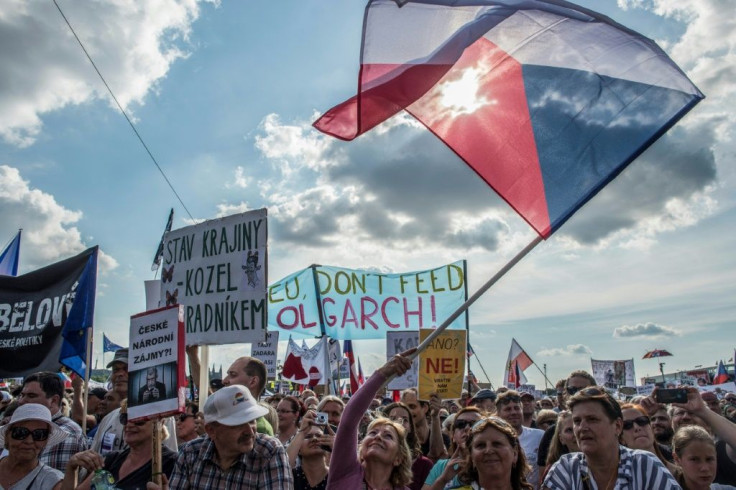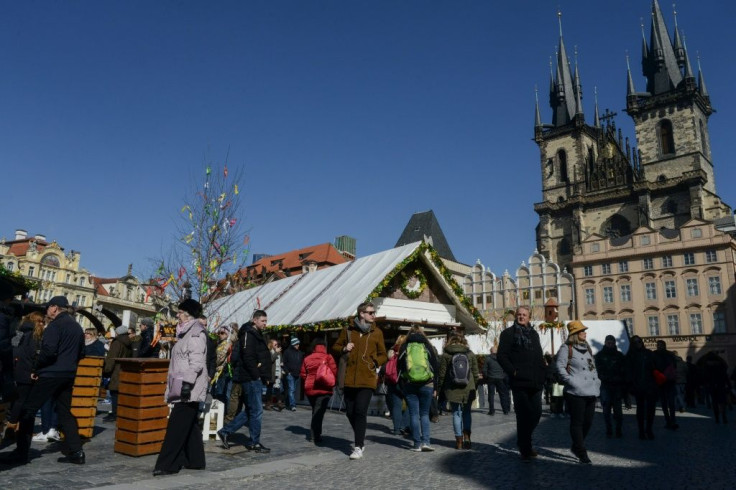Five Things To Know About The Czech Republic
The Czech Republic, which holds general elections on Friday and Saturday, is an ex-communist country that has been an EU member since May 1, 2004.
The Czech Republic became a NATO member in 1999 before joining the European Union. It is also a part of the Schengen free travel area, but it has resisted adopting the euro, favouring its own koruna (crown) currency.
The current head of state is Milos Zeman, a pro-Russian, pro-Chinese former communist. He was re-elected for a second consecutive term in January 2018.
Billionaire Prime Minister Andrej Babis presides over a minority government with tacit backing from the Communist Party of Bohemia and Moravia for a parliamentary majority.
A former communist himself, Babis is the first politician since the 1989 fall of communism in former Czechoslovakia to allow communists to have a role in government.
The 67-year-old is facing charges over EU subsidy fraud after allegedly taking his farm out of his sprawling Agrofert holding to make it eligible for an EU subsidy.

The EU is dismayed over his dual role as a politician and entrepreneur, and Babis also faces allegations that he served as a secret communist police agent in the 1980s.
The Czech Republic was hit hard by the Covid-19 pandemic as it topped global death and infection statistics per capita for weeks at the beginning of 2021.
Critics said the toll had shot up because of negligence on the part of Babis' government as it did not want to upset voters with restrictions at the time of regional elections last autumn.
The Covid lockdown hit the Czech economy hard, as it is heavily dependent on car production and exports to the eurozone.

In the second quarter this year, the Czech economy grew by 8.1 percent on an annual basis. However, support programmes forced by Covid and populist measures taken by the Babis government ahead of the general election have left a gaping hole in the Czech state coffers.
The country's three car plants -- Skoda, Hyundai and Toyota -- underpin Czech industry.
In 1918, Western Slavs shook off Austro-Hungarian rule, establishing Czechoslovakia, a new country comprising Czechs and Slovaks. But by 1938, Nazi Germany annexed its borderland regions called Sudetenland and a year later it took over the Czech territories of Bohemia and Moravia, while Slovakia became a satellite state of the Third Reich.
Czechoslovakia regained its autonomy in 1945. In February 1948, a communist coup brought the country into the orbit of the Soviet Union.
The "Prague Spring" of 1968 was crushed by Moscow and its allies, but in November 1989 the Velvet Revolution ended four decades of Soviet domination, propelling dissident playwright Vaclav Havel to the Czechoslovak presidency.
Czechoslovakia split into two states, the Czech Republic and Slovakia, in 1993. Havel became the first Czech president in February 1993.
The country of 10.6 million people has no access to the sea and borders Poland, Slovakia, Austria and Germany.
Its capital Prague is a tourist magnet, boasting a picturesque historic centre that has enjoyed UNESCO World Heritage status since 1992. In the shadow of the Prague Castle, the old town split by the Vltava River is rich in architectural gems, Renaissance and Baroque palaces, Gothic cathedrals and art deco buildings illustrating its thousand-year history.
© Copyright AFP 2024. All rights reserved.




















